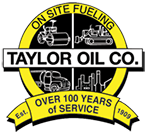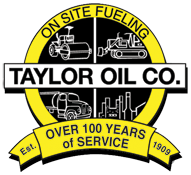Preventing Your Fleet from Diesel Fuel Gelling This Winter
Preventing Your Fleet from Diesel Fuel Gelling This Winter - Gelling is nothing you want to happen to your machines in the cold. Diesel fuel gelling is when the paraffin wax starts to thicken and turn into a cloudy mixture when the temperatures begin to fall. This problem can get so bad that the wax can clog fuel filters and solidify, making it difficult or impossible for the fuel to flow. Your engine becomes useless and you can’t be productive. You lose money and maybe even some customers during all that downtime. This phenomenon can occur when temperatures drop below 32 degrees Fahrenheit; however, the exact temperature at which this can happen does vary by fuel batch. Don’t want to risk it? Heed these tips to prevent your diesel fuel from gelling in your fleet this winter. Heated Storage The best way to prevent gelling is to control the temperature of the facility in which the engine is stored. When the engine runs, the fuel moves and flows freely, with little opportunity to solidify. If you can, store your vehicles and equipment in a heated garage or climate-controlled structure. We realize this isn’t always possible for large construction fleets, which [...]


